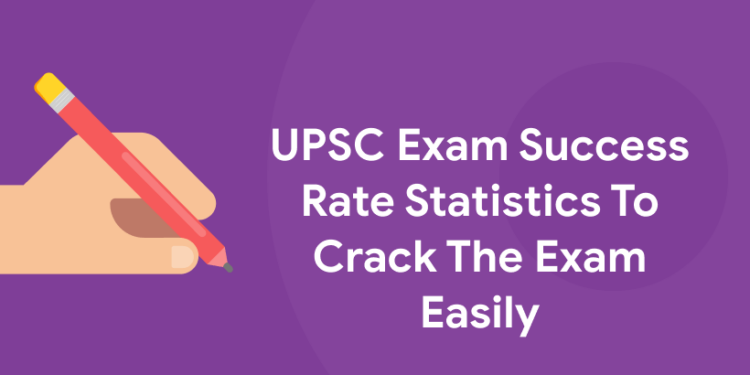The UPSC Civil Services Exam is frequently referred to as “the mother of all exams” and is regarded as being challenging. Millions of young people are vying for this exam because passing it will provide them with a fantastic opportunity and platform to give back to society and effect change. One of the most frequent questions among applicants for government employment is “What is UPSC Exam?”The UPSC Civil Services Examination is what is more often referred to as the IAS Exam. The UPSC Civil Services Examination is one of the tests that the Union Public Service Commission conducts to discover competent applicants for the Indian civil services, including the IAS, IPS, IFS, and other related services. (CSE). The three components of this test are the UPSC Prelims, UPSC Main, and the personality test or UPSC Interview.
The first stage of the IAS test is the UPSC Preliminary Examination, which is the screening test and is hence qualifying in nature. The UPSC Prelims exam result is not factored into the final merit. The grade in GS Paper-I is significant in setting the cutoff for the UPSC Prelims Exam, though. The IAS Prelims Exam contains two objective-type, MCQ-based examinations, unlike the UPSC Civil Services Mains Exam. The nine descriptive tests that make up the UPSC Mains Exam.
UPSC Exam Structure
There are three sequential stages to it:
1.Civil Services Preliminary Exam (Objective Type)
2.Civil Services Main Exam (Written)
3. Interview for the selection of candidates for the various Services and posts.
The Prelims exam consists of two objective multiple-choice papers: Paper I is based on general studies, and Paper II is an aptitude test that is solely used to qualify students (a minimum score of 33% is required). A maximum of 200 points are awarded for each paper. This exam is simply intended to serve as a screening tool, and the results won’t be used to determine the ultimate order of merit. The Mains exam has nine papers, two of which are qualifying, and it is worth 1750 points. There are 275 points awarded for the interview stage. The overall total now stands at 2025 marks.
Why is the UPSC Exam one of the most difficult exams?
Even though there are only a few thousand available positions, over 4 lakh students apply for the prelims test each year; nevertheless, only about ten thousand make it to the main exam; and eventually, only about a thousand or more make it to the interview stage.
A Bright IAS Career Awaits for you! Get Free Demo Class!
Out of all applicants, only 50% of candidates show up for the prelims exam, and only 5% of applicants pass on to the final exam. Only 40% of individuals who participated in the main stage (Personality Test/Interview Round) advance to the final round, and only 20% of that 40% qualify for the service. Let us look into the exam statistics held in recent years:
UPSC Exam Statistics
| Year | Applied for Prelims | Appeared for Prelims | Cleared Prelims | Appeared for Mains | Shortlisted for Interview | Selected |
| 2019 | 800000 approx. | 568282 | 11845 | 11700 approx. | 2034 | 829 |
| 2018 | 1755945 | 801476 | 10246 | 10246 | 1992 | 1056 |
| 2017 | 1000000 approx. | 500000 approx. | 13366 | 13060 | 2568 | 990 |
| 2016 | 1135943 | 459659 | 15452 | 15445 | 2961 | 1099 |
| 2015 | 945908 | 465882 | 15008 | 15008 | 2797 | 1078 |
| 2014 | 947428 | 446623 | 16706 | 16286 | 3308 | 1112 |
| 2013 | 776604 | 324279 | 14800 | 14178 | 3001 | 1122 |
| 2012 | 550080 | 271442 | 12795 | 12190 | 2674 | 998 |
| 2011 | 499120 | 243236 | 11837 | 11237 | 2415 | 910 |
| 2010 | 547698 | 269036 | 12271 | 11865 | 2589 | 920 |
When compared to the number of applicants for the exam, around 50% of candidates appear in the exam each year, if we notice. For instance, in 2015, 4, 65,882 out of 9, 45,908 applicants showed up for the prelims exam. Let’s set aside the numbers and focus on the other details of these figures, such as how many of the 4, 65,882 candidates who showed up for the prelims exam were serious about the test and approached it with all of their passion and excitement.
The UPSC exam success rate is less than 1% according to the figures of the success rate provided above, and this statistic is the main factor in making candidates believe they won’t make the shortlist. However, if it is analyzed correctly, ignoring the factual data and taking into account the facts, candidates will learn about the various aspects of this statistical data.
Only a small percentage—roughly 45,000—of the lakhs of candidates who are registered for the exam are committed to taking it seriously. According to factual figures, the probability of success is now 2% when taking into account this number and the final 2015 selection list, which is 1078. While the number of applicants who qualified for the mains exam was around 14 times greater than the number of openings, this indicates that 15,008 applicants successfully passed the preliminary examination. As a result, 15,008 out of 62,000 applicants (roughly 1 in 4 serious applicants) pass the preliminary exam.
To qualify for the main exam, a candidate must be one of the 15,008 candidates who pass the IAS Prelims Exam. Since the success rate for a serious candidate is 25%, the competition is not with the 4, 65,882 candidates who show up but with those 62,000 serious candidates. Currently, 2797 applicants have been chosen for the Personality Test/Interview as part of the selection process out of 15,008 applicants who qualified for the main exam. Once more, the candidate must pass the major exam with a passing grade of about 15% to advance to the next stage. One of the two individuals that took the personality test was chosen, so in this case, 50% represents the success percentage.
How to prepare for UPSC Exams?
There are three approaches that UPSC hopefuls frequently employ:
- Self-Study
UPSC can be passed with self-study. This “textbook-based approach” through self-study, however, takes more time than preparing with the aid of professional coaching and appropriate resources. To pursue the route of self-study, an individual must be very disciplined and motivated by themselves. Most applicants who prepare independently without assistance quickly lose focus, according to observations. It’s not unusual to see candidates working on their UPSC preparation for three to four years without completing self-study on half of the topics. Working adults or college students with only a few hours every day to devote to UPSC CSE preparation should not rely solely on self-study. They should look for a strategy that would enable them to cover topics more quickly and effectively.
- Mock Test
Compared to text-based learning, this test-based technique to learning is speedier. This method requires the candidate to study everything alone, with the exception of taking practice examinations. Even while this approach is more beneficial than only depending on textbooks for preparation, you may learn more rapidly and purposefully if you have the chance to get instruction from qualified teachers, whether in person or online.
- Expert Coaching
This will provide you all the resources you require, such as study guides, mock exams, recommendations, specialised classes for each topic, and methods to raise your grade point average. Before starting any coaching, applicants should think about this. Avoid following only popular trends or marketing. Try to evaluate the faculty’s credibility and the coaching’s quality on your own. Before enrolling in any course, you can also read feedback from former toppers.
Wrapping Up
“Attitude is a little thing that makes a big difference,” stated Winston S. Churchill. To overcome obstacles and experience countless failures and setbacks during the preparation process, one needs to cultivate a strong attitude with the understanding that doing so will ultimately help one advance. You should read more about the syllabus and review the PYQs now that you have a good understanding of the UPSC CSE Exam. Start preparing today to crack the UPSC.
Crack UPSC in First Attempt! Get Demo Classes Here!
FAQs
- Which UPSC CSE stage is the most difficult?
Many people believe that the Civil Services Preliminary Exam, the first stage of the UPSC CSE, is the most difficult part of the entire IAS selection process. Why? Because 97 candidates out of the 100 who write the preliminary exams may not pass!
- Which position in UPSC is powerful?
Of all the UPSC positions, the Cabinet Secretary of India has the most authority.
- How is UPSC rank decided?
The last exam component, the Interview, which weighs 275 points, has no minimum score requirement. The final ranking of the applicants would be determined by their performance in the Main Examination. (written portion as well as interview).
| Related Links | |
| UPSC Mains Malayalam Question Paper | UPSC Malayalam Mains Syllabus |
| UPSC Interview Medium of Language | UPSC FAQs |
| UPSC IAS Interview Questions | UPSC IAS Malayalam Optional Books |










